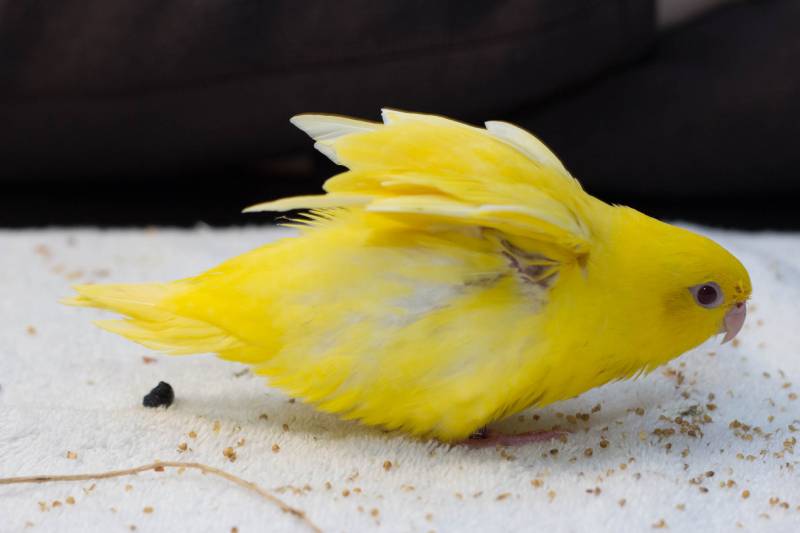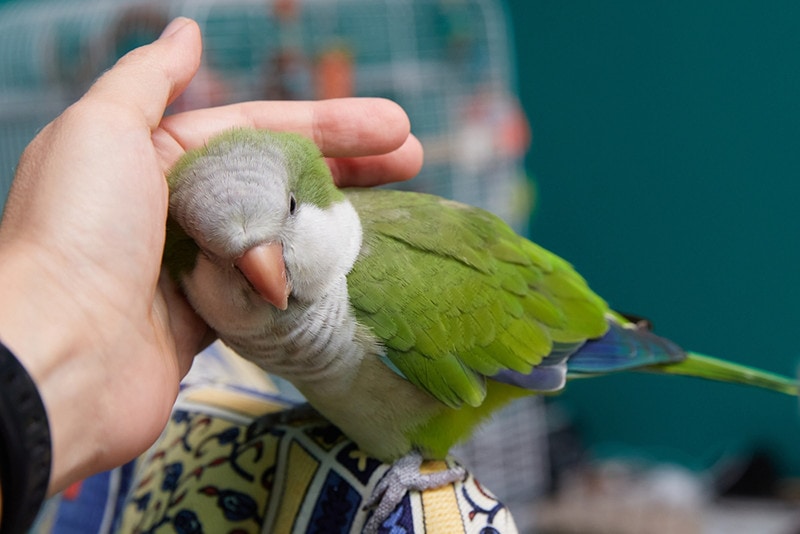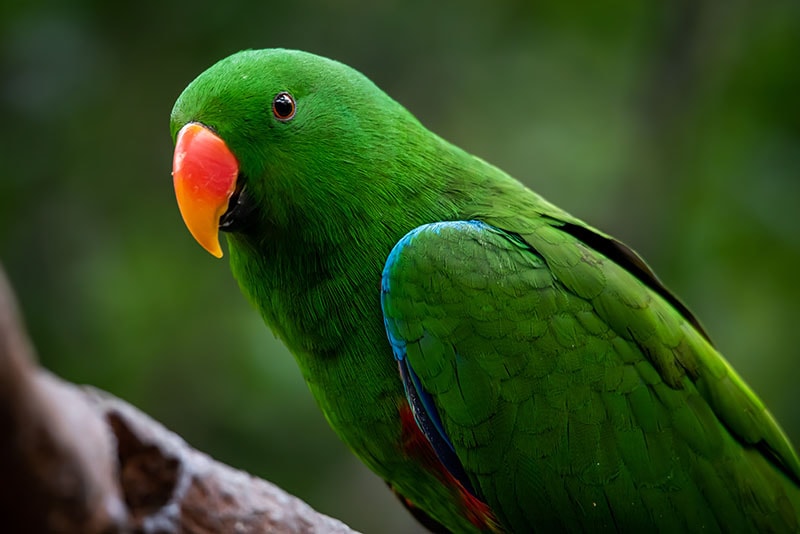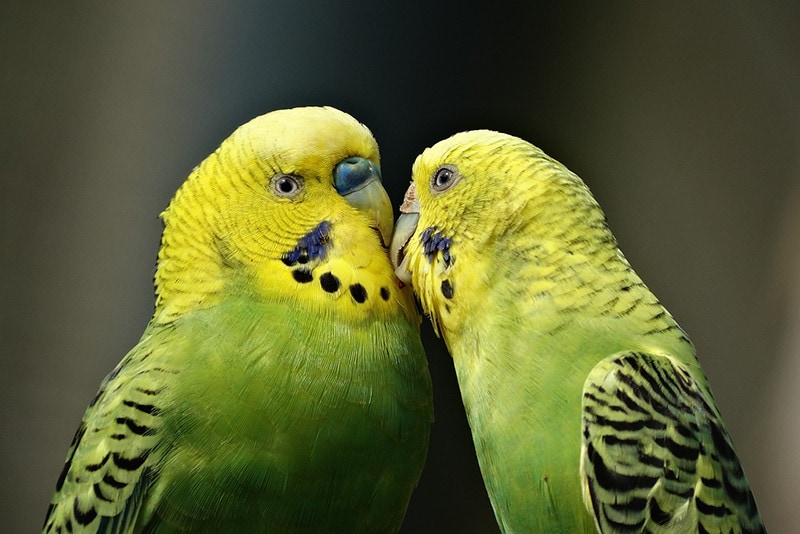How Often Do Parakeets Poop? Vet-Approved Facts & Explanation
Updated on

Click to Skip Ahead
Parakeets are popular pet birds that many people consider to be great “starter” birds for first-time bird keepers, but these delightful little parrots still have specific care needs, and require a good understanding of their habitat, diet, and behavior . This means that anyone planning to bring home a parakeet needs to thoroughly research these birds before bringing one home.
While understanding the basics, like diet, enclosure, lighting, activity, and health care needs, are essential to the care of these birds, it’s also important to know what to expect from your bird’s bodily functions—specifically, how often they should (or shouldn’t) poop.
How Often Do Parakeets Poop?
The frequency of your parakeet’s pooping will vary based on the individual bird, their diet, and their environment, but most birds can be expected to poop between every 10 and 30 minutes; some birds may even poop as frequently as every 5 minutes. Thank goodness cats and dogs don’t follow a similar schedule!
While this may sound excessive, this is perfectly normal for most bird species. The frequent production and passing of bodily waste are an essential part of a bird’s healthy digestion, and reflect the fact that they graze throughout the day, rather than eat at specific times.

How Often Do Parakeets Pee?
Believe it or not, parakeets don’t urinate in the traditional sense. They pass their urinary waste products in the form of urate, which is a solid form of urinary waste. They also only have one external hole—the cloaca—from which they pass waste, so your bird will pass fecal and urinary waste at the same time.
When Should I Be Concerned?
Although you may not be able to set your watch to your parakeet pooping schedule, you should become familiar with what their normal frequency is. If you notice a change in the frequency of your parakeet’s pooping, there may be cause for concern. If your bird seems to be pooping more often than every 5–10 minutes, or less than every 30 minutes or so, it may be cause for concern, and if your bird hasn’t pooped in a few hours, then it’s important that you reach out to your avian vet for guidance.
The consistency of your parakeet’s poop should be formed but not hard and not difficult for your bird to pass. A small amount of liquid urine can also be normal in parakeet poop, but excessively watery or runny poop is a cause for concern, especially if it continues to happen multiple times. Popcorn-like poop in birds, in which the waste product has popcorn-like clumps with a watery component, should also be considered abnormal.
Abnormal droppings in birds can present as different in texture or color than the bird’s usual waste: bloody or blood-streaked, extremely watery or fully liquid, the consistency and appearance of pea soup, a bubbly appearance, and at a notably different frequency than what is normal for the bird. Waste products that are completely red or black are cause for immediate concern and should be assessed by a veterinarian immediately. Parakeets with intestinal worms can also shed worms in their feces, so keep an eye out for these.

What Are Normal Parakeet Droppings Like?
Depending on what type of diet they eat, parakeet poop is usually green or brown in color, and may be firm or a bit loose. The urate component is usually creamy white, and you may also notice a clear liquid urine as well.
What About Where They Poop?
Parakeets are not considered to be “latrine” animals, in that they tend to just poop where they stand, but you can gain some additional insight into their health by observing the distribution of their poop during the day and night. Parakeets are diurnal, meaning that they are active during the day, and sleep at night, so their poop patterns should reflect that.
Conclusion
You can expect your parakeet to poop pretty frequently, so it’s important to learn what is normal for your pet, so you can keep an eye on their poop for changes that can indicate a problem. If your bird is consuming lots of fruits and veggies or received a new treat, then their poop may be a little watery shortly after consuming these foods, but it should resolve on its own. If your bird is routinely having diarrhea or bloody, watery, dark-colored, or popcorn-like poop, then it may be time for a call to your vet.
See Also:
- How to Trim Parakeet Nails: 9 Vet-Approved Tips & Tricks
- How Often Do Parrots Poop? Vet Reviewed Facts & FAQs
Featured Image Credit: Epiglottis, Shutterstock












